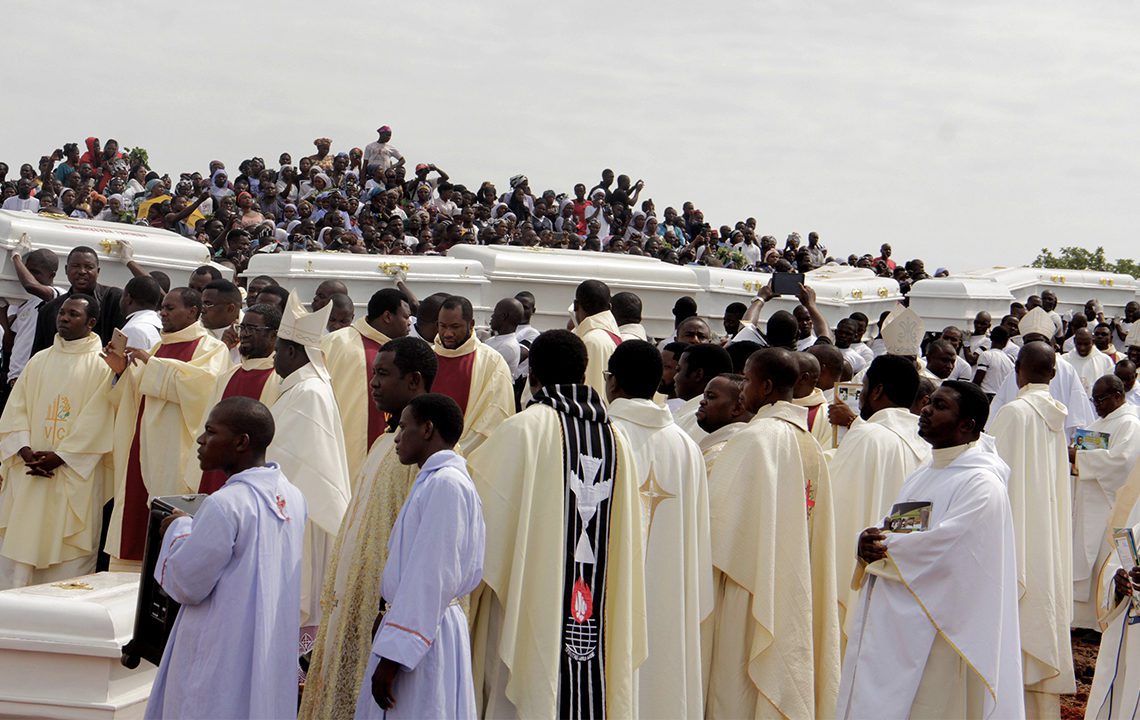

Atrocity Alert No. 173: Climate Change and the Responsibility to Protect
Atrocity Alert is a weekly publication by the Global Centre for the Responsibility to Protect highlighting situations where populations are at risk of, or are enduring, mass atrocity crimes.
Climate Change: “threat multiplier” for conflict and atrocities
On Monday, 23 September, UN Secretary-General António Guterres convened the 2019 Climate Action Summit in New York, bringing together world leaders to discuss plans to reduce greenhouse gas emissions by 45 percent over the next decade and to net-zero emissions by 2050. The Secretary-General has recognized that “climate change is the defining issue of our time” and called for accelerated action to combat it.
Climate change is also a threat multiplier for conflict and mass atrocities. As global temperatures continue to rise, extreme weather episodes proliferate, and desertification and resource scarcity increase, the risks and challenges of global hunger, poverty and conflict intensify. Such challenges pose a direct threat to some vulnerable societies, creating an environment conducive to the commission of genocide, war crimes, ethnic cleansing and crimes against humanity. According to the UN Environmental Programme, over the past six decades 40 percent of civil wars can be linked to disputes over natural resources.
During the opening of the 42nd session of the Human Rights Council on 9 September, the UN High Commissioner for Human Rights, Michelle Bachelet, highlighted this linkage, asserting that, “The human implications of currently projected levels of global heating are catastrophic… The world has never seen a threat to human rights of this scope.” Noting the increase in violent extremism and frequent clashes between herders and agriculturalists in the Sahel region, the High Commissioner argued that addressing the root causes requires not just ensuring military forces act in compliance with human rights, but that states also invest in “redressing environmental threats.”
Meanwhile, in Nigeria growing desertification has resulted in loss of grazing land in the north-east, driving many ethnic Fulani herdsmen, who are mainly Muslim, southward into areas farmed by settled communities that are predominately Christian, leading to increased inter-communal tensions and deadly violence. More than 3,600 people were killed in such violence between January 2016 and October 2018, with the intensity, longevity and lethality of attacks increasing in recent years. The armed extremist group Boko Haram has also exploited the effects of climate change in the north-east to recruit fighters and seize territory abandoned by populations forced to migrate due the catastrophic impact of the shrinking of Lake Chad.
In Yemen, since 2015 both non-state armed groups and members of the Saudi-led international coalition have exploited growing water scarcity for military purposes. Water reservoirs and desalination plants have been deliberately targeted and bombed, with disastrous consequences. As a result of the ongoing conflict, more than 15 million Yemenis have been left without access to clean water or sanitation, and in 2017 Yemen experienced the largest cholera outbreak in modern history. Deliberately targeting essential civilian infrastructure is a war crime.
Climate change poses an existential threat to every human being on this planet. But the detrimental effects will not be borne equally. The international community must address the growing threat of climate-related conflict by investing in programs and policies that mitigate conflict, support the UN’s Sustainable Development Goals, and uphold our collective responsibility to protect vulnerable populations from the threat of mass atrocity crimes.
Related Publications


Atrocity Alert Special Issue: Children and Armed Conflict
